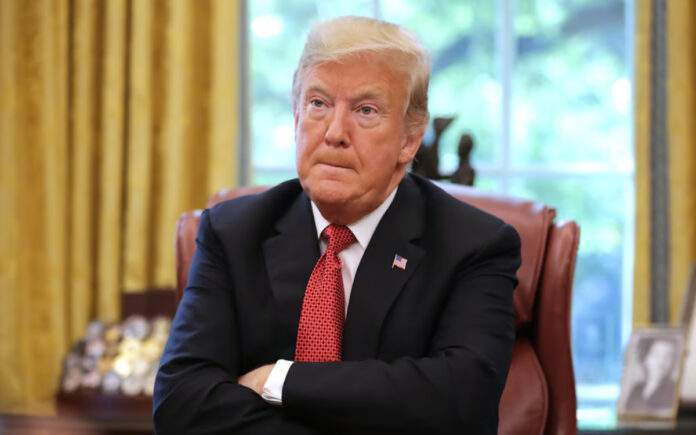Washington, DC: U.S. President Donald Trump has issued a stark warning to Iran, threatening military action and economic penalties if Tehran does not reach an agreement with Washington over its nuclear program.
In his first remarks since Iran rejected direct negotiations with the United States last week, Trump told NBC News that discussions between U.S. and Iranian officials were ongoing, though he did not provide details.
“If they don’t make a deal, there will be bombing,” Trump stated in a telephone interview. “It will be bombing the likes of which they have never seen before.”
Trump also hinted at the reimplementation of secondary tariffs, a move aimed at pressuring Iran’s economy. “There’s a chance that if they don’t make a deal, that I will do secondary tariffs on them like I did four years ago,” he added.
'If they don't make a deal, there will be bombing,' Trump said in a telephone interview with NBC News, urging Iran to come to a new agreement with Washington over its nuclear program https://t.co/rQVq0TxmB5 pic.twitter.com/ehn1mTLxhV
— Reuters (@Reuters) March 31, 2025
Iran has responded through Oman to a letter from Trump urging a new nuclear deal, reaffirming its stance against direct negotiations while under U.S. economic pressure and military threats. Iranian Foreign Minister Hossein Amir-Abdollahian emphasized this position last Thursday.
Reiterating the policy, Iranian President Masoud Pezeshkian stated on Sunday, “Direct negotiations (with the U.S.) have been rejected, but Iran has always been involved in indirect negotiations, and now too, the Supreme Leader has emphasized that indirect negotiations can still continue.” His remarks referenced Ayatollah Ali Khamenei’s stance on the matter.
Also Read | Panama Rejects Interpol Request for Former President Martinelli
During the NBC interview, Trump also mentioned potential secondary tariffs on both Russia and Iran, following his recent executive order authorizing similar measures against buyers of Venezuelan oil.
Speaking to reporters aboard Air Force One later on Sunday, Trump indicated that a final decision on secondary tariffs against Iran would depend on the progress of negotiations. “We’ll probably give it a couple of weeks, and if we don’t see any progress, we’re going to put them on. We’re not putting them on right now. But if you remember, I did that six years ago, and it worked very well,” he said.
Also Read | Elon Musk Donates $2M to Wisconsin Voters in Supreme Court Race
During his first term in office from 2017 to 2021, Trump withdrew the U.S. from the 2015 Joint Comprehensive Plan of Action (JCPOA), a deal between Iran and world powers that imposed stringent restrictions on Tehran’s nuclear program in exchange for sanctions relief. He then reimposed broad U.S. sanctions, prompting Iran to expand its uranium enrichment far beyond JCPOA limits.
Western nations accuse Iran of seeking nuclear weapons capability, arguing that its uranium enrichment surpasses what is necessary for civilian energy production. Tehran, however, insists its nuclear program is solely for peaceful purposes and remains committed to energy development within legal frameworks.



